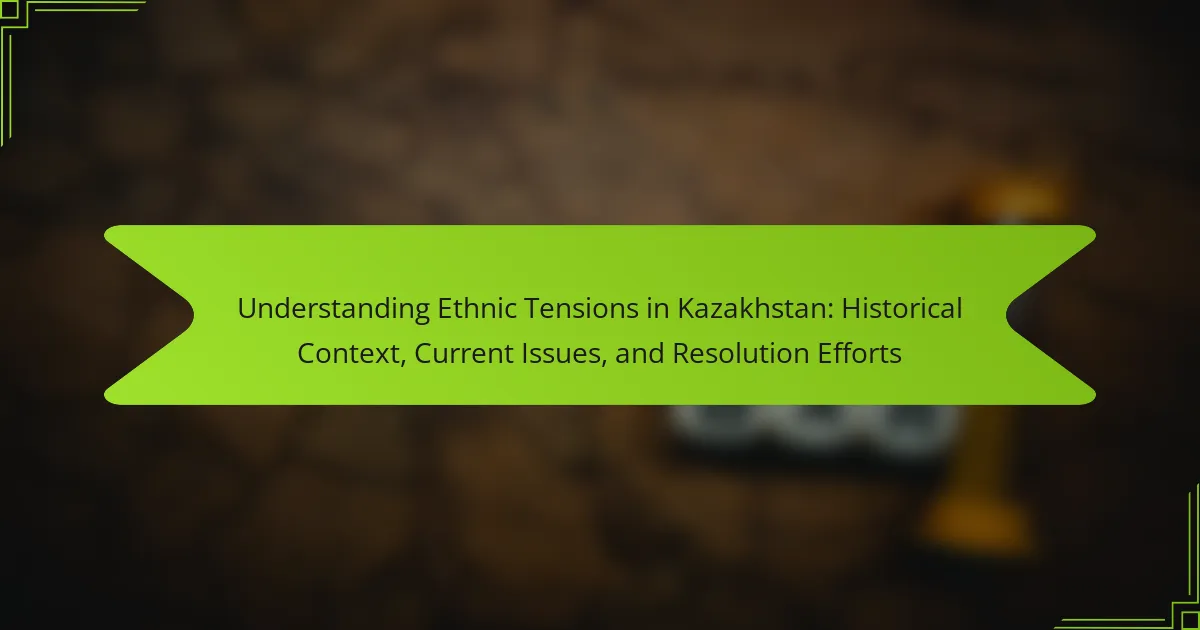Ethnic tensions in Kazakhstan are rooted in historical events from the Soviet era, including the forced relocation of various ethnic groups and policies that caused suffering among Kazakhs. Current issues such as economic disparities, political representation, and cultural differences continue to exacerbate these tensions. The government is actively working to address these challenges through initiatives […]

The Rise of Digital Currencies in Eurasian Markets: Benefits and Risks
Digital currencies, also known as virtual currencies, utilize cryptography for security and operate on decentralized blockchain networks. In Eurasian markets, these currencies facilitate cross-border transactions with reduced fees and faster processing times, enhancing financial accessibility and inclusion, particularly in regions with limited banking infrastructure. Countries like Russia and Kazakhstan are actively exploring central bank digital […]
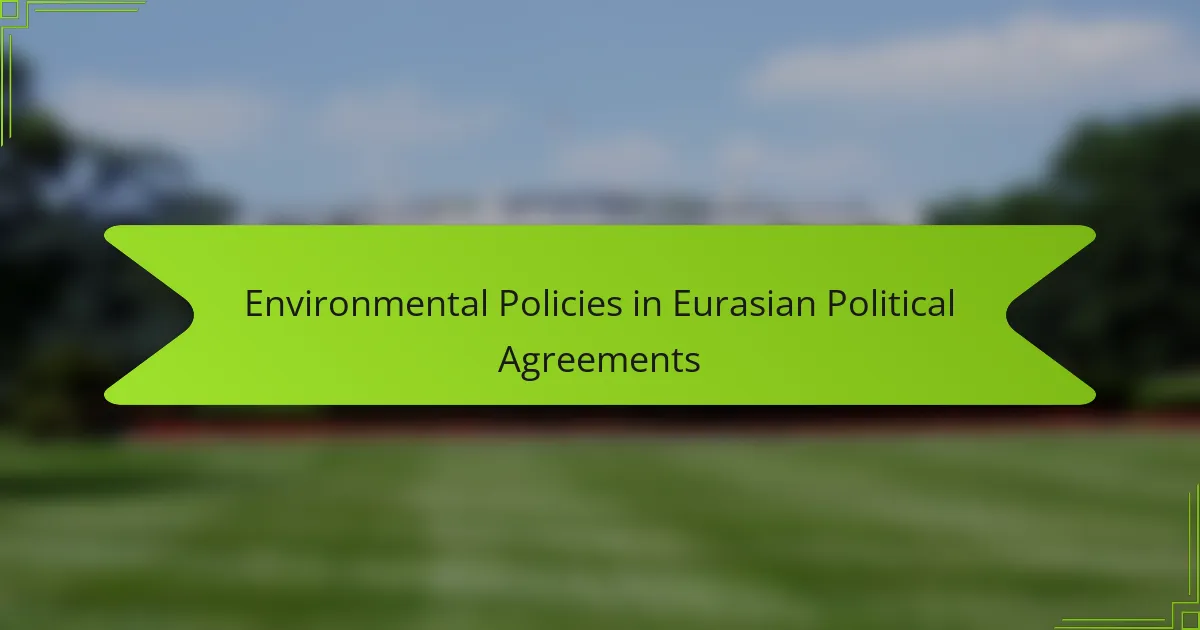
Environmental Policies in Eurasian Political Agreements
Environmental policies in Eurasian political agreements serve as essential frameworks for member states to tackle environmental challenges collaboratively. These policies focus on sustainable development, carbon emission reduction, and biodiversity protection, facilitating regional cooperation on issues like pollution control and conservation. However, they face challenges such as inconsistent regulatory frameworks, economic priorities overshadowing environmental concerns, and […]
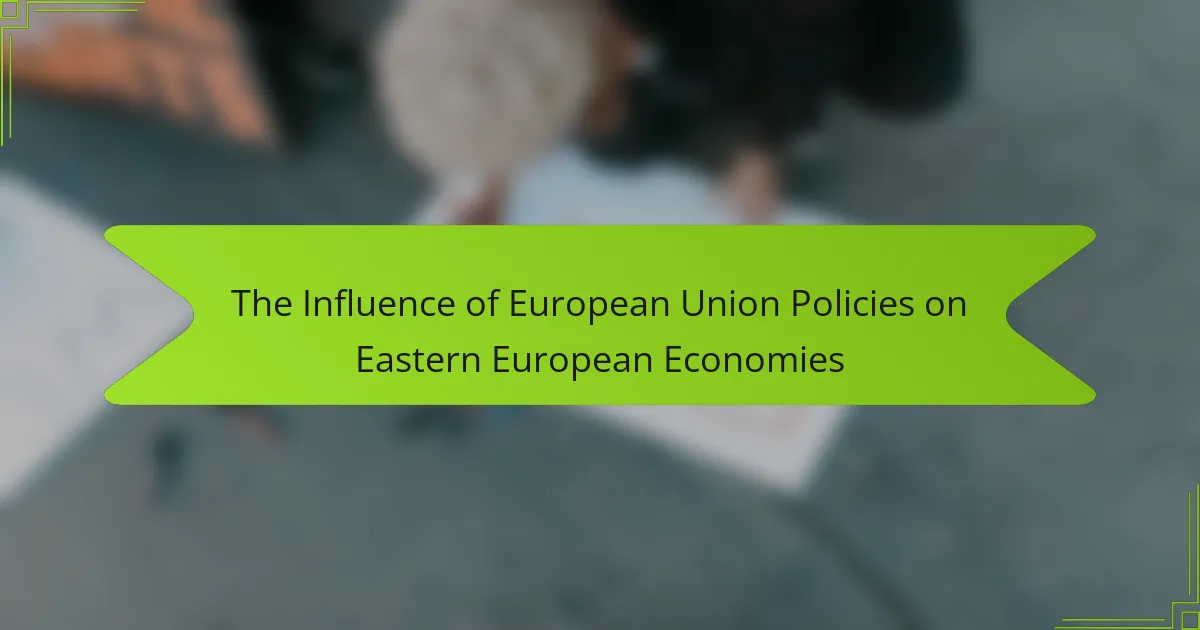
The Influence of European Union Policies on Eastern European Economies
European Union (EU) policies play a crucial role in shaping the economies of Eastern European countries. Key policies include the Cohesion Fund, which allocates €63 billion for infrastructure and development to reduce economic disparities; the Common Agricultural Policy, providing approximately €386 billion in subsidies to support sustainable agriculture; and the Single Market, which facilitates the […]
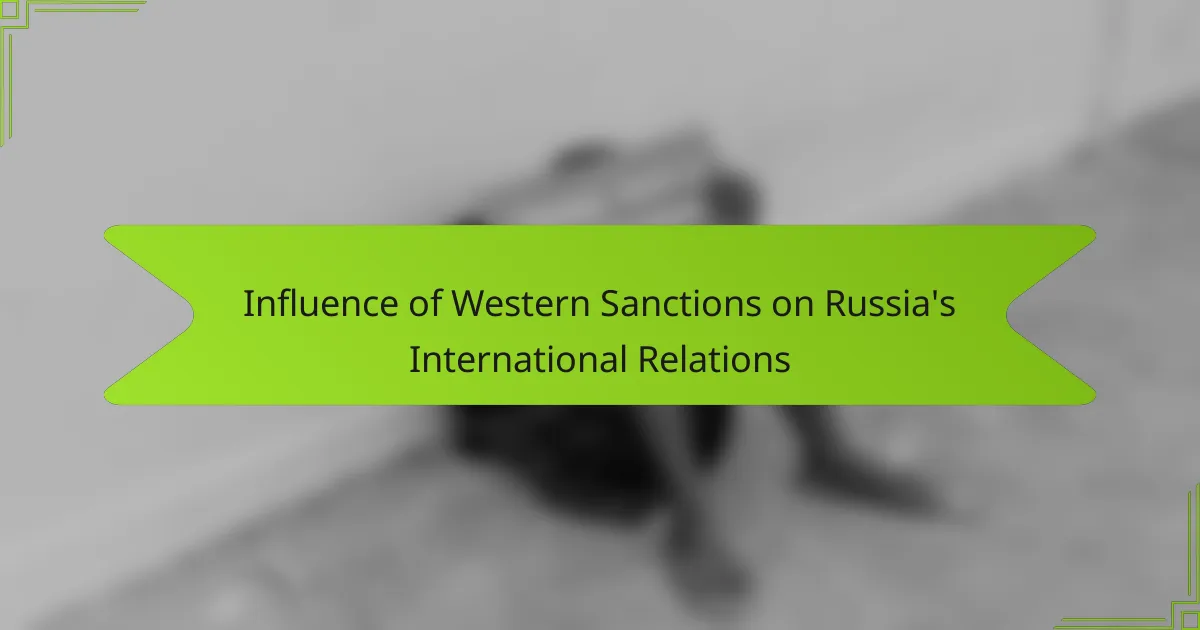
Influence of Western Sanctions on Russia’s International Relations
Western sanctions are restrictive measures imposed by Western countries to influence the behavior of specific nations in response to actions such as human rights violations or aggression. This article examines the impact of these sanctions on Russia, particularly following its annexation of Crimea in 2014 and its actions in Ukraine. It outlines how sanctions have […]
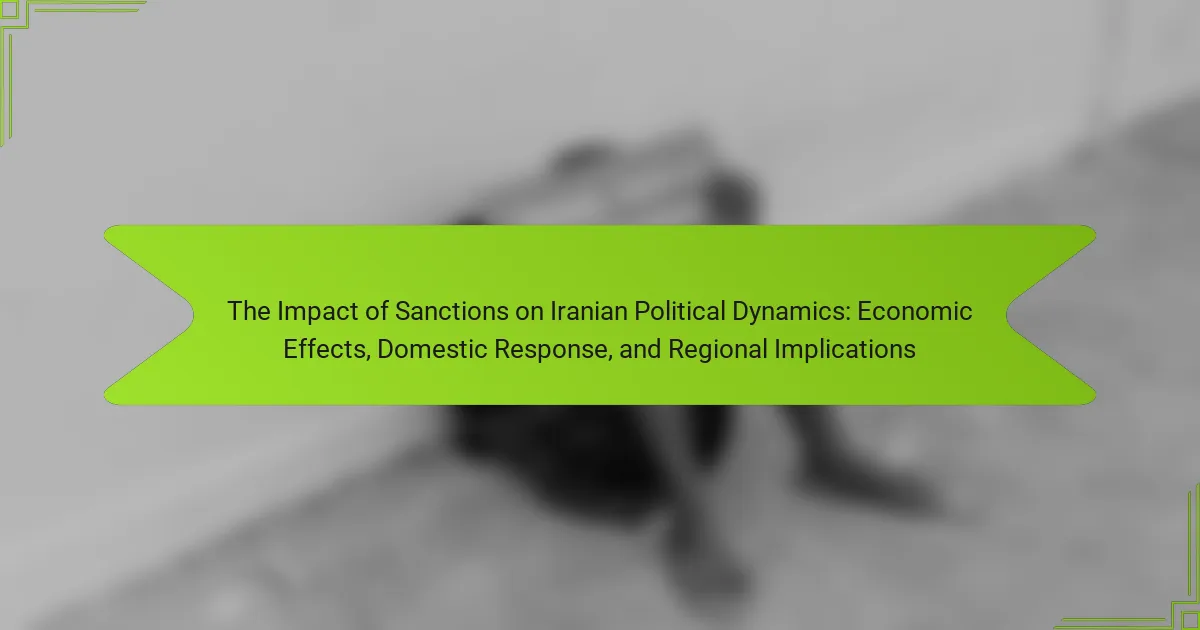
The Impact of Sanctions on Iranian Political Dynamics: Economic Effects, Domestic Response, and Regional Implications
The article examines the impact of sanctions on Iran, focusing on economic, domestic, and regional dimensions. Sanctions imposed by the United States and the European Union target Iran’s nuclear program, human rights violations, and support for terrorism, significantly affecting its economy and international relations. Domestic actors in Iran respond to these sanctions through adaptation, resistance, […]
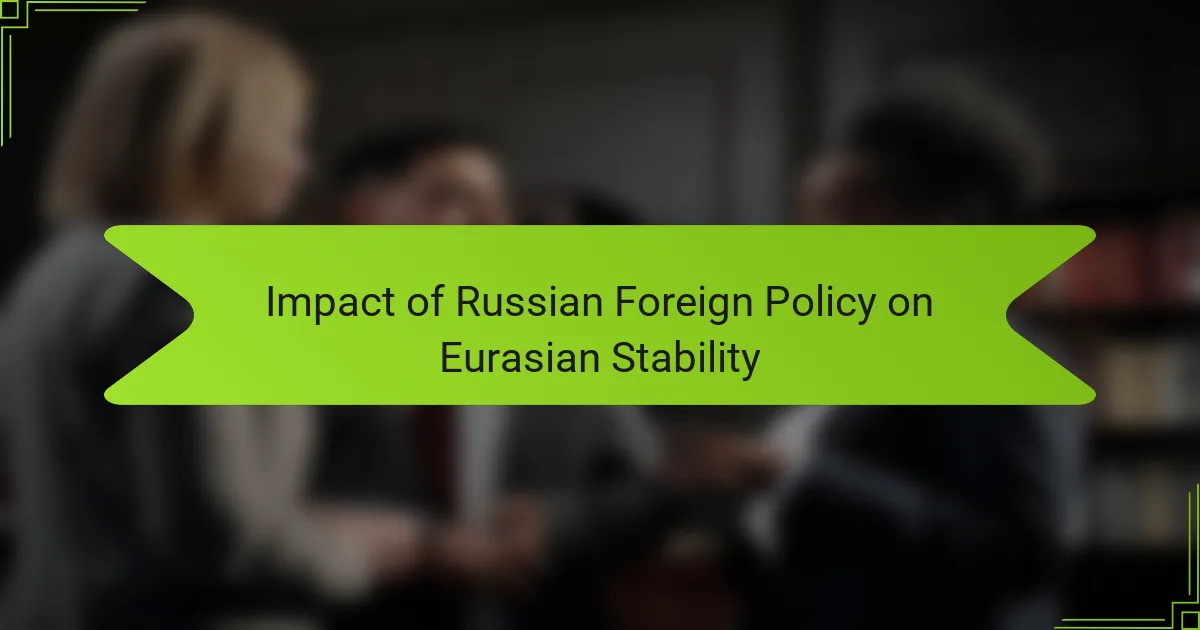
Impact of Russian Foreign Policy on Eurasian Stability
Russian foreign policy plays a critical role in shaping the stability of the Eurasian region. This article examines how Russia’s military interventions, such as the annexation of Crimea, and diplomatic actions influence regional alliances and geopolitical dynamics, often leading to increased tensions with neighboring countries like Ukraine, Georgia, and Moldova. It explores the historical evolution […]
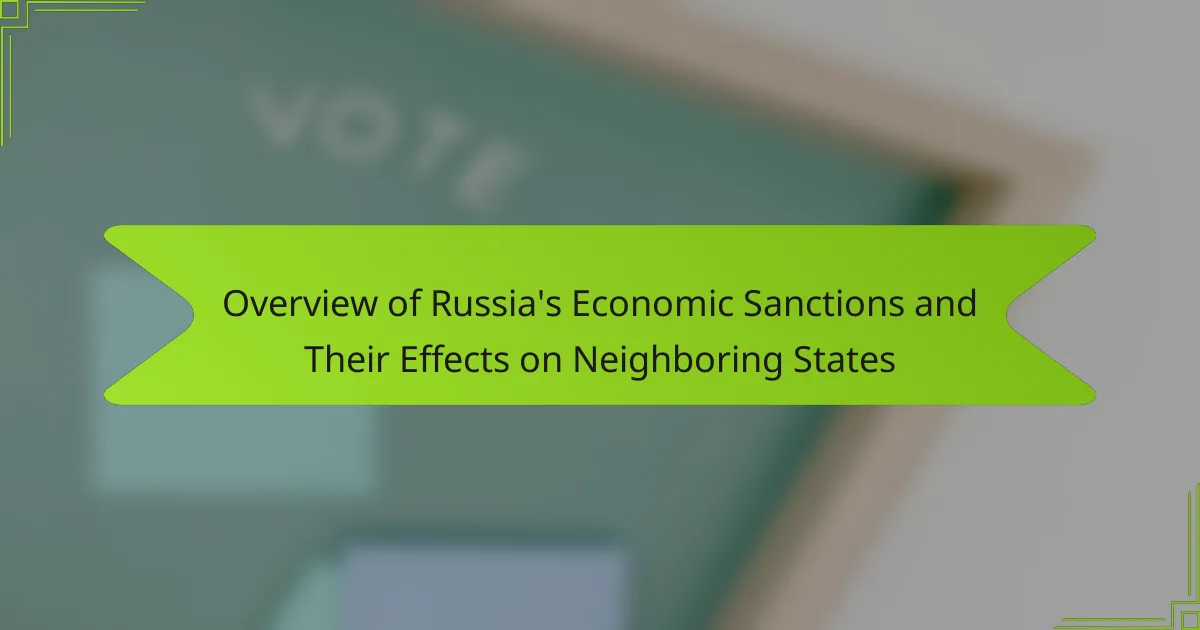
Overview of Russia’s Economic Sanctions and Their Effects on Neighboring States
Russia’s economic sanctions are restrictive measures imposed by various countries in response to its geopolitical actions, particularly targeting sectors like finance, energy, and defense. These sanctions, which include asset freezes and trade restrictions, have significant economic impacts on Russia, leading to declines in foreign investment and inflation. Neighboring states, such as Ukraine and Belarus, face […]
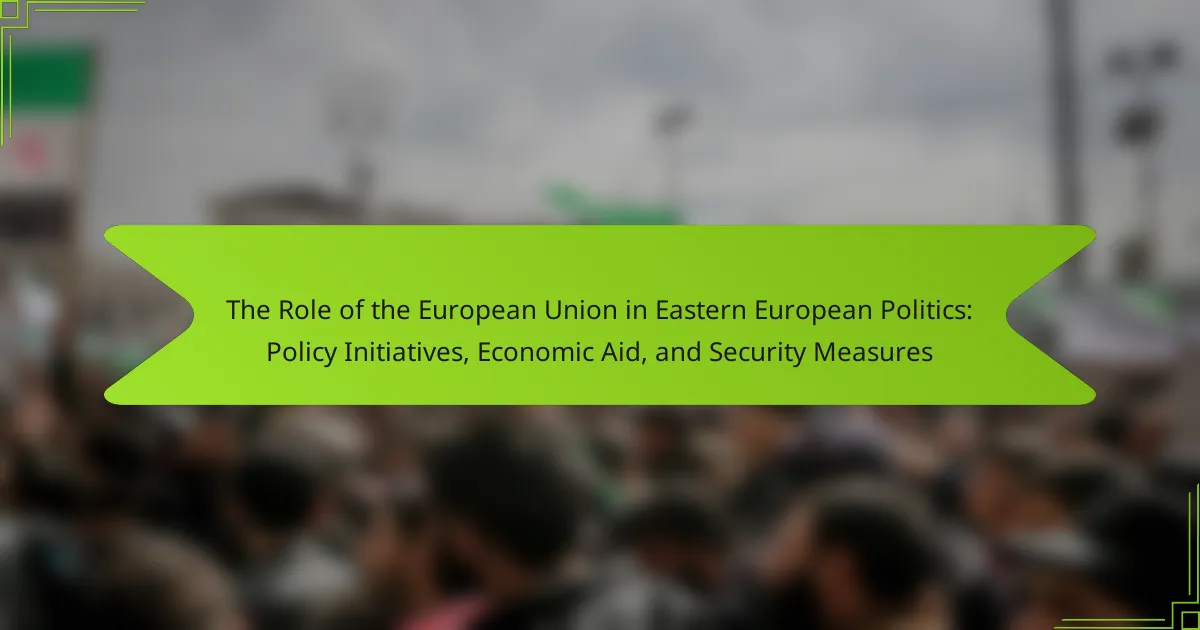
The Role of the European Union in Eastern European Politics: Policy Initiatives, Economic Aid, and Security Measures
The European Union (EU) significantly influences Eastern European politics through policy initiatives, economic aid, and security measures. The EU promotes stability, democracy, and economic development by engaging with countries such as Armenia, Azerbaijan, Belarus, Georgia, Moldova, and Ukraine, particularly through the Eastern Partnership program. It provides financial support for reforms and infrastructure, while also implementing […]
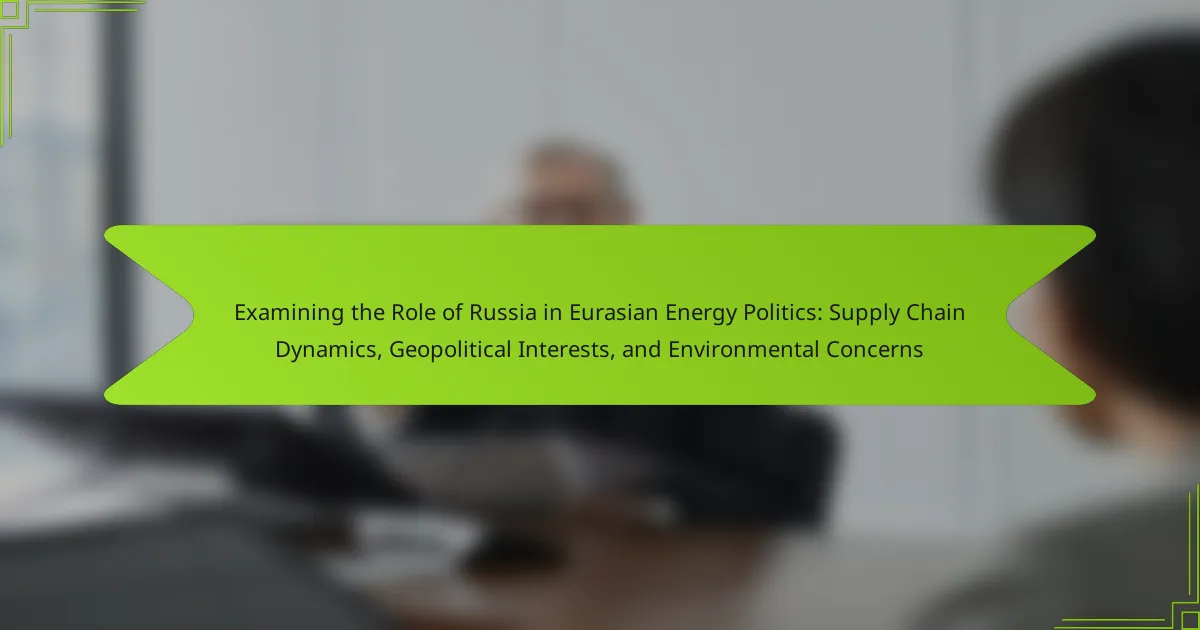
Examining the Role of Russia in Eurasian Energy Politics: Supply Chain Dynamics, Geopolitical Interests, and Environmental Concerns
Russia is a major player in Eurasian energy politics, being one of the largest producers and exporters of oil and natural gas in the region. The country’s extensive pipeline network, including Nord Stream and TurkStream, enhances its strategic influence over European and Asian energy markets. This article examines the supply chain dynamics of Russian energy, […]
